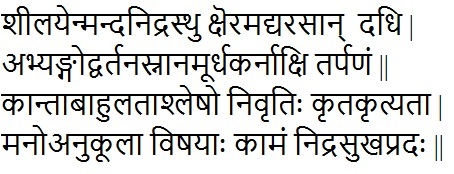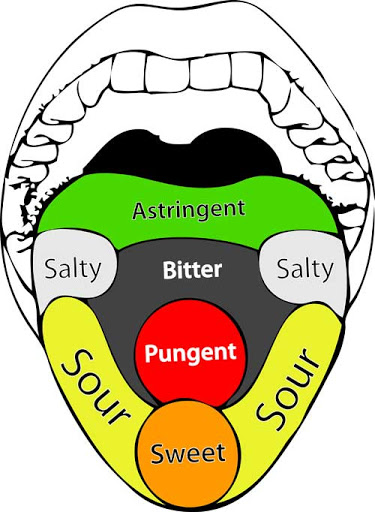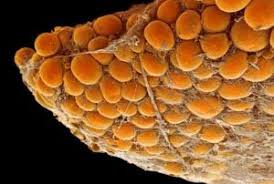Sleeplessness, often termed insomnia, is a pervasive ailment that afflicts countless individuals worldwide, disrupting both physical and mental health. At its core, it represents the inability to fall or stay asleep, leading to significantly reduced rest periods. While fleeting episodes might stem from immediate stressors, chronic sleeplessness can be symptomatic of deeper health issues, including anxiety, depression, or even certain medications. The ripple effects of a sleep-deprived night are felt throughout the subsequent day—concentration wanes, mood fluctuates, and energy levels plummet. Furthermore, prolonged insomnia can heighten the risk of chronic diseases, including cardiovascular ailments and weakened immune responses. Culturally, as the world moves at an accelerated pace, the prioritization of rest often takes a backseat, exacerbating sleeplessness for many. Tackling insomnia requires a holistic approach, encompassing lifestyle adjustments, therapeutic interventions, and, at times, medical attention. The significance of sound sleep can never be understated; it remains a pillar of human well-being.
Ayurveda emphasizes good sleep at night as it rejuvenates the body and mind. Various ayurvedic tips, remedies, treatments, and medicines help with sleeplessness or insomnia and induce good sleep.
Table of content
What causes sleeplessness according to ayurveda
Best time to sleep according to ayurveda
Ayurvedic hair oil for good sleep (include ksheerabala, chandanadi)
Ayurveda foods that induce good sleep
Role of vata dosha in sleeplessness
What is Sleep in Ayurveda?
In Ayurveda, sleep (Nidra) is considered one of the three essential pillars of life, alongside diet (Aahara) and celibacy (Brahmacharya). Sleep is viewed as a natural way to rejuvenate and heal the body and mind. It balances the doshas—Vata, Pitta, and Kapha—which are the fundamental energies governing physiological functions. Disrupted or inadequate sleep can aggravate the doshas, leading to imbalances and ailments. Ayurveda emphasizes the importance of regular sleep patterns, aligned with nature’s rhythms, for maintaining optimum health and well-being. Quality of sleep is given as much importance as its quantity, making sleep a holistic experience in Ayurvedic philosophy.
Sleep is a physical and mental resting state of a person. During sleep, he becomes inactive and will not be aware of the surrounding environment. His senses do not respond to external stimuli.
According to Ayurveda sleep is
“ yadaa tu manasi klaante karmaatmaanaha klamaanvitaaha |
Vishayebhyo nivartante tadaa swpiti maanavaha ||”
When mind, sensory, and motor organs are exhausted they disassociate themselves from their senses and stimuli. This makes a person go to sleep.
A bad sleeping pattern causes unhappiness, loss of body weight and strength, klaibya or erectile dysfunction, low libido, loss of memory, and lowered immunity.
A good sleeping pattern enhances happiness, increases immunity and body strength, boosts sexual function and libido, and improves memory and intelligence.
What Causes Sleeplessness According to Ayurveda?
Insomnia is a condition in which a person will be having trouble getting good sleep. The term “Anidrata” is used in texts of Ayurveda to describe this condition.
Insomnia or sleep disorder is defined as “difficulty falling asleep”. People with Insomnia or sleeplessness suffer from various symptoms. They feel it difficult to fall asleep. Sometimes they wake in the middle of sleep and find it difficult to fall asleep later. Many of those who suffer from sleep disorders feel tired after waking up. Even waking up too early in the morning is a sleep disorder.
Many factors such as stress workload, health issues, energy drinks, technology, and much more have been attributed as reasons for sleeplessness. It is expected that after a time at work that involves many logical tasks, stresses, and other job activities that are supposed to aid your quick rest at night, you find it difficult to give in to bed. This tends to result in insomnia.
Stress from a job or stress due to family matters can cause acute insomnia or temporary sleeplessness which gets cured as soon as the stress factor is solved.
Emotional discomforts like grief and physical discomforts like pain, blocked nose, cough, fever, etc may also cause sleeplessness for a short period.
Changing the place of sleep, bright light, noise, extreme temperatures, jet lag, working in shifts, etc can lead to acute insomnia.
Lifestyles like watching television before going to bed, viewing smartphones during sleeping hours, consuming a heavy meal during sleeping hours, and drinking caffeinated beverages can also cause sleeplessness. If these lifestyles are continued for a long time chronic insomnia may set in.
Chemotherapy and radiation therapy which are used for treating cancer may also cause temporary insomnia
Long-standing stress, anxiety, and depression may become reasons for Chronic Insomnia.
According to Ayurveda Insomnia is caused due to fear, anxiety, anger, overexertion (physical and psychological), fasting, uncomfortable bed, diseases like colic pain, etc. Panchakarma which has not been performed methodically may also lead to insomnia. Vitiated Vata Dosha causes sleeplessness.
Best Time to Sleep According to Ayurveda
According to Ayurveda, the ideal time for sleep is governed by the natural rhythms of the universe and the doshas—Vata, Pitta, and Kapha. These doshas operate in cycles, influencing our body’s functions and energy levels throughout the day and night.
1. Kapha Time (6 PM – 10 PM): As the evening begins, the heavy and slow qualities of the Kapha dosha dominate. It’s the best time to wind down and prepare for sleep. Going to bed during the early part of this phase, ideally around 9 PM to 10 PM, is recommended, as it ensures that you’re asleep before the Pitta phase begins.
2. Pitta Time (10 PM – 2 AM): The transformative and fiery nature of the Pitta dosha becomes active. If awake during this period, people may feel a second wind of energy, often leading to overthinking or creativity. But sleeping during this phase ensures deep rest and allows the body to cleanse, regenerate, and rejuvenate.
3. Vata Time (2 AM – 6 AM): The airy and mobile qualities of Vata dominate this phase. Waking up during the latter part of this period, ideally around 5 AM to 6 AM, is considered ideal, as it aligns with the universe’s natural rhythm and aids in spiritual practices and meditation.
Thus, in Ayurveda, it’s suggested to sleep early, during the Kapha phase, and rise early in the Vata phase to ensure optimal health, mental clarity, and spiritual growth.
Ayurvedic Herbs for Good Sleep
Ayurveda, offers a plethora of natural remedies to enhance sleep quality and address sleep disorders. Rooted in thousands of years of traditional knowledge, Ayurveda prescribes specific herbs known for their sleep-inducing and mind-calming properties. These herbs not only help in achieving restful sleep but also balance the body’s internal energies or doshas—Vata, Pitta, and Kapha. Here are five of the most potent Ayurvedic herbs that promote good sleep:
1. Ashwagandha (Withania somnifera):
– Description: Ashwagandha, commonly known as Indian ginseng, is one of the most revered herbs in Ayurvedic medicine. It’s renowned for its adaptogenic qualities, which means it helps the body adapt to stress and restores balance.
– Benefits for Sleep: The active compounds in Ashwagandha, referred to as withanolides, exert a calming effect on the nervous system. This helps in reducing anxiety, alleviating stress, and inducing sleep. Additionally, Ashwagandha is known to combat insomnia by enhancing the levels of GABA, a neurotransmitter that promotes relaxation.
– Usage: Ashwagandha can be consumed in the form of a powder, capsule, or tincture. Traditional preparation involves boiling its roots in milk and consuming before bedtime. This preparation is known as ashwagandha ksheerapaka or moon milk.
2. Brahmi (Bacopa monnieri):
– Description: Brahmi, also known as Bacopa, is a staple herb in Ayurveda known for its cognitive-enhancing properties. It’s often depicted as a tonic for the mind and nerves.
– Benefits for Sleep: Brahmi possesses natural sedative properties that reduce anxiety and promote relaxation. Its adaptogenic nature helps in managing chronic stress, which is a common culprit behind disturbed sleep patterns. Moreover, Brahmi improves the body’s response to stress by modulating brain chemicals such as serotonin and dopamine.
– Usage: Brahmi can be consumed as a tea, powder, or in capsule form. A traditional practice involves mixing Brahmi powder with warm water or ghee and consuming it before sleep.
3. Jatamansi (Nardostachys jatamansi):
– Description: Jatamansi, often referred to as spikenard, is a revered herb with a rich history of use in Ayurveda for its mind-calming properties.
– Benefits for Sleep: Jatamansi is effective in managing sleep disturbances due to its tranquilizing effect. It’s especially beneficial for individuals who suffer from insomnia resulting from emotional imbalances or mental unrest. Additionally, this herb balances the Vata dosha, which, when aggravated, often leads to restlessness and disturbed sleep.
– Usage: Jatamansi can be taken as a tea, powder, or essential oil. The oil can be massaged onto the feet or diffused in the bedroom for a calming ambiance.
4. Tagara (Valeriana wallichii):
– Description: Tagara, commonly known as Indian Valerian, is recognized for its sedative and tranquilizing properties.
– Benefits for Sleep: Tagara is especially beneficial for individuals with an overactive mind. It naturally relaxes the central nervous system, leading to a sense of calm and facilitating restful sleep. It also helps in reducing anxiety and stress, both of which can interfere with sleep.
– Usage: Typically, the root of Tagara is used for medicinal purposes. It can be consumed as a powder mixed with warm water or as a decoction before bedtime.
5. Sarpagandha (Rauvolfia serpentina):
– Description: Also known as Indian snakeroot, Sarpagandha has been historically used to treat hypertension and mental disorders.
– Benefits for Sleep: One of the active compounds in Sarpagandha, reserpine, is known for its ability to lower blood pressure and induce sleep. It’s particularly beneficial for those whose sleep disturbances are related to anxiety, restlessness, or high blood pressure.
– Usage: Sarpagandha can be consumed in tablet or powder form. Due to its potent effects, it’s crucial to take this herb under the guidance of an Ayurvedic practitioner.
While Ayurvedic herbs offer promising benefits for sleep improvement, it’s essential to use them judiciously and under expert guidance. Individual needs may vary, and what works for one person may not necessarily work for another. It’s always recommended to consult with an Ayurvedic practitioner to determine the best herb and dosage for your specific needs.
Ayurveda tips for good sleep
Ayurveda acharyas recommend the following tips and treatments to get good sleep.

Hot Soups :
Drinking hot soups of meat or vegetables with fewer spices helps to get good sleep. Eating curd/ dahi/yogurt which is not too sour (amla rasa), also improves sleeping hours.
Turmeric milk:
Drinking warm turmeric milk with a teaspoon of ghee helps to get a very good sleep. This drink also promotes bowel movement in the morning and relieves constipation.
Warm milk :
Sipping a glass of warm milk will give you what you want. The sleeping-inducing amino acid tryptophan in the milk has been claimed to aid your falling asleep. Try to keep it warm as people see the warmth as calming and relaxing to help them relax both mentally and physically. Add this routine to your diary of home remedies to have a good sleep.
Head massage:
Take a head Massage with Vata dosha balancing oils like sesame oil or coconut oil at night.
Body massage:
Massaging is known as abhyanga in ayurveda. Massaging the whole body and head with warm pure sesame oil or ksheerabala oil and a good hot water bath makes you have a good night’s sleep.
Instilling Castor oil drops :
Instilling pure warm castor oil drops to ears and eyes are the other methods that help to induce sound sleep.
Foot massage
Massage your foot with warm oil and take a foot bath in warm water for 15 minutes.
Take warm water bath
Taking a warm bath before going to bed is another wonderful natural home remedy for good sleep. Sinking yourself in a warm bathtub to wash the day’s stresses from your body makes you feel relieved and cleaned as well as reduces the temperature of your body to have good sleep. With the addition of your favorite lavender, you are guaranteed of having an aromatherapy rest throughout the night.
Have sex and hugs
Hugging loved ones and remembering happy moments is the best remedy for insomnia. Good sexual intercourse is the best therapy for Insomnia or sleeplessness.
Keep the bedroom clean
For this keep your bedroom clean. The bedroom is described as a place where one takes a rest. If you want to have a good sleep, your bedroom is expected to be well conducive to its purpose. Ensure your bedroom is put in place to condition your mind and body to sleep. Your bedroom shouldn’t be a place to erect your T.V. or set up your reading tablet, computer, or video game. All these items not only take your time and keep you awake, but they are robbing you of your entitled relaxation. Your bedroom should not be your second office where you complete your daily office work. All these electronics and activities in the bedroom make your bedroom a stress zone, and it cannot aid you to sleep as is needed. Now, that you want a good sleep every night, T.V., computer, reading table, and other related components must go, to make your bedroom a bedroom.
Change the sleep Pattern
Do not sleep in day time if you are not getting good sleep at night. Daytime sleep can cause sleeplessness at night. But elder people, children, patients, pregnant women, lactating mothers, and physically very active persons like athletes are exceptions to this.
Practice Yoga, Meditation, and Exercise:
Meditate for 15 minutes before going to bed. Practice yoga to normalize sleep.
Select an easy yoga routine that does not require much power to stretch your body right in your bed. This is just to energize you in place of acupuncture. Then take some time to meditate and free your mind of any form of thoughts of what has happened during the day. After this, close your eyes for 6 to 9 nine minutes without paying attention to anything except your breathing.
Another home remedy to quickly lure you to good sleep is exercise. Exert yourself with good exercises in the morning. These exercises in turn help to get a good sleep at night. Indulge in regular exercise, and you will experience better rest. Regular exercise benefits you not only to help you sleep better but also helps you gain more energy for next-day activities. This is true because regular exercise has been discovered to enhance better sleep, resulting in more energy when you wake up. However, exercise during the day has been shown to be the best in achieving a better result of good sleep. A brisk walking for 45 minutes is an excellent daytime exercise
Practice good eating habits
Eat food – 3 hours before going to bed. Avoid caffeinated beverages in the late evenings. Reduce consumption of alcohol and smoking cigarettes. Avoid the consumption of oily foods at night. Consume warm light food like rice and milk before going to bed. Do not eat curd (yogurt) at night.
Ayurvedic hair oil for good sleep
In Ayurveda, the practice of head massage using therapeutic oils, known as “Shiro Abhyanga,” is deeply entrenched in daily routines for promoting overall well-being. Especially pertinent to inducing relaxation and good sleep, certain Ayurvedic hair oils play a dual role: enhancing hair health while simultaneously fostering a sense of calmness and tranquility.
The scalp, dense with nerve endings, is a potent area for absorbing the therapeutic properties of these oils. Massaging these oils not only nourishes hair roots but also calms the mind, improving sleep quality. Specific ingredients often found in these Ayurvedic concoctions include:
1. Brahmi: Recognized for its mind-relaxing properties, Brahmi infused in hair oil can alleviate stress and anxiety, paving the way for restful sleep.
2. Jatamansi: Another tranquilizing herb, Jatamansi in hair oil formulations, can balance the mind’s hyperactive tendencies, promoting peaceful sleep.
3. Bhringaraj: While primarily known for preventing hair loss and graying, Bhringaraj’s cooling properties soothe the mind, making it easier to drift into sleep.
Application involves gently massaging the oil onto the scalp, ensuring it permeates the roots. This ritual, ideally done at dusk, sets the stage for unwinding, as the potent Ayurvedic ingredients work their magic, granting the user a sound slumber and lustrous hair.
Ayurvedic Foods that Induce Sleep
Ayurveda, the ancient system of Indian medicine, emphasizes the significance of a balanced diet for maintaining harmony in body and mind. Certain foods, imbued with properties that pacify the mind and balance the doshas, can naturally foster a better sleep environment. Here are some notable Ayurvedic foods and their sleep-inducing qualities:
1. Warm Milk:
A timeless Ayurvedic recommendation for insomnia, warm milk, especially when sourced from cows that graze on organic pastures, is considered sattvic or pure. Its naturally calming properties are enhanced when combined with a pinch of turmeric or nutmeg.
2. Cherries:
Naturally rich in melatonin, the hormone responsible for regulating the body’s sleep-wake cycle, cherries, especially tart ones, are an Ayurvedic favorite for promoting restful sleep.
3. Almonds:
These nutrient-dense nuts are packed with magnesium, which not only supports muscle relaxation but also naturally calms the nervous system. A handful of soaked almonds can pave the way for a peaceful night.
4. Bananas:
Apart from being a good source of magnesium and potassium, which help in muscle relaxation, bananas also contain tryptophan, an amino acid that converts to serotonin and melatonin in the brain, aiding sleep.
5. Whole Grains:
Foods like quinoa and barley are not only nutritious but also have high tryptophan content. These grains can help in producing the sleep-regulating neurotransmitter, serotonin.
6. Saffron:
Saffron ( Kesar), the revered spice, when added to warm milk or food, can act as a mild sedative, promoting sound sleep.
7. Fennel Seeds:
Known for their digestive properties, fennel seeds ( Saunf) also have a cooling effect on the body, making them perfect for balancing pitta dosha. Drinking fennel-infused water can help induce sleep, especially for those with an overactive mind.
In Ayurveda, not only the type of food but also the manner of consumption is essential. Eating at the right time, typically 2-3 hours before bedtime, ensures that the digestive process doesn’t interfere with the sleep cycle. Moreover, the environment in which one eats, free from distractions and in a calm setting, can further enhance the sleep-inducing properties of these foods.
It’s essential to recognize that each individual’s constitution (prakriti) may react differently to foods. Therefore, while these general recommendations can be beneficial, personalizing one’s diet based on individual needs and consulting an Ayurvedic practitioner can yield the best results.
Role of vata dosha in sleeplessness or Insomnia
In Ayurveda, the tridosha system, comprising Vata, Pitta, and Kapha, governs all physiological and psychological processes. Among these, Vata dosha, characterized by attributes like cold, light, dry, and mobile, predominantly regulates movement and communication within the body. When imbalanced, Vata’s influence extends to various ailments, including disturbances in sleep patterns.
Vata governs the nervous system and the processes of the mind, making it directly linked to sleep. An aggravated Vata can lead to restlessness, an overactive mind, anxiety, and, subsequently, sleeplessness or insomnia. This restlessness is often due to the inherent mobile and erratic qualities of Vata, causing difficulty in settling down, both mentally and physically, to achieve restful sleep.
External factors exacerbating Vata imbalance include irregular sleep routines, excessive travel, overconsumption of stimulants, cold and dry environmental conditions, and irregular eating habits. Internal factors can be unresolved stress, pent-up emotions, or underlying anxiety.
The disturbance in Vata can also manifest in sleep-related conditions like frequent nighttime awakenings, unsettling dreams, or feeling unrefreshed after waking up.
To counteract Vata-induced sleeplessness, Ayurveda recommends grounding practices. This includes a routine bedtime, warm oil massages, consuming Vata-pacifying foods (those that are warm, moist, and grounding), meditation, and the use of calming herbs. Addressing and harmonizing Vata is key to restoring a natural and peaceful sleep cycle.
Effect of Sleeplessness or Chronic Insomnia
- Sleeplessness leads to indigestion,
- Body pain,
- Lowered immunity,
- The reduced span of attention, Ability to learn, remember, and concentrate are affected. Low memory power and Delayed reflexes.
- Erectile dysfunction and Loss of Libido.
- Fatigue and Lowered energy levels
- Depression and Mood swings
- Increased blood pressure.
- Cardiac risks etc.
- Dark circles under eyes.
- Dry skin.
- The appearance of wrinkles on the skin.
- Hair loss or hair fall.
About Daytime sleep in Ayurveda
Ayurveda acharyas advise not to sleep in the daytime. Good sleep at night always keeps the body healthy. But in a few unavoidable health conditions and in conditions where doshas are imbalanced daytime sleep is advised by Ayurveda vaidyas. Here is a list of health conditions in which daytime sleep is advised.
- A person who exercises well and exerts physically can sleep in the daytime. He needs this rest to balance his energy level and allow his strained tissues to recover.
- People who indulge in increased sexual activities can sleep in the daytime. A lot of energy is spent on sexual activities. This leads to the loss of shukra dhatu or shukra kshaya. During daytime sleep, the lost energy and shukra dhatu get replenished. Or else he or she may land into conditions like low libido and fatigue. If men, who indulge in increased sexual activities, do not take a nap in the daytime, they may land into conditions like erectile dysfunction, decreased semen volume, low sperm count, and low sperm motility. During an ayurvedic treatment for male infertility, doctor advice to avoid day time sleep.
- Persons who walk very long distances have to sleep in the daytime. This allows them to recover lost energy and also rejuvenate injured tissues.
- Individuals who have been afflicted by diseases like diarrhea, indigestion, stomach pain, wheezing, and diseases of Vata can take a daytime nap.
- Children, the elderly, night shift workers , and people who fast, have to sleep in the daytime.
Author: Dr.Savitha Suri , Consultant Ayurvedic Physician
Click for Ayurvedic Consultation
Call us at +91 9945995660 / +91 9448433911
WhatsApp + 91 6360108663






